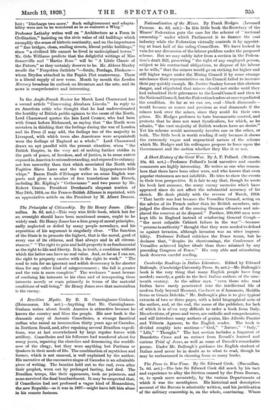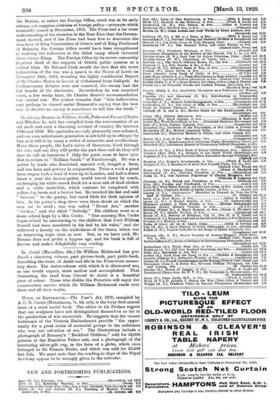The Press in War-Time. By Sir Edward Cook. (Macmillan. 7s.
6d. net.)—The late Sir Edward Cook did much by his tact and experience to allay the friction caused by the Press Bureau, or, to speak more accurately, by the various Departments of which it was the mouthpiece. His historical and descriptive account of the Bureau is admirably written, and his justification of the military censorship is, on the whole, convincing. Where the Bureau, or rather the Foreign Office, erred was in its early attemp s to suppress criticism of foreign policy—attempts which nominally ceased in December, 1915. The Press had a far truer understanding of the situation in the Near East than the Govern- ment showed, and if the Press had been free to denounce the treachery of King Constantine of Greece and of King Ferdinand of Bulgaria, the Foreign Office would have been strengthened in resisting the influences in the Allied camp which favoured those enemy Kings. The Foreign Office by its severe censorship deprived itself of the support of British public opinion at a critical time. Sir Edward Cook recalls the fact that the worst indiscretion of the war was a speech in the House of Lords on November 18th, 1915, revealing the highly confidential Report of Sir Charles Monro in favour of withdrawal from Gallipoli. As Parliamentary debates were not censored, the enemy had the full benefit of the disclosure. Nevertheless he was surprised when, a few weeks later, Sir Charles Monro's recommendation was carried out. The author remarks that " this indiscretion may perhaps be classed under Bismarck's saying that the best way to deceive an enemy is sometimes to tell him the truth."











































 Previous page
Previous page